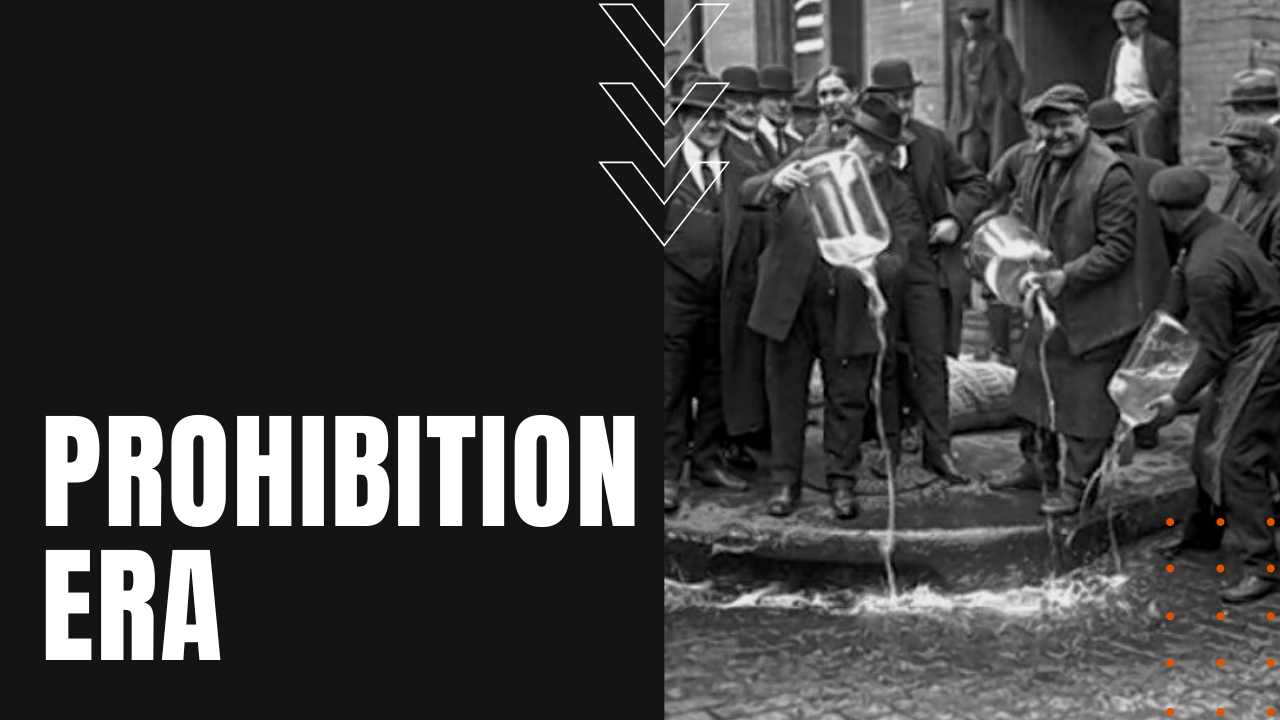Prohibition Era in America

America’s Early Embrace of Alcohol
When the Mayflower made landfall at Plymouth Rock, her hold carried a sizeable cargo of beer, setting off a culture in America that gravitated around the consumption of alcohol. George Washington supplied his beleaguered troops at Valley Forge with half a cup of daily rum, while young Abraham Lincoln made a tidy living selling barrels of whiskey from his grocery store in New Salem Illinois.
But as distillers moved from 2% beer to high octane whiskies and rum, by the 1830s, the average American over fifteen years of age drank the equivalent of 88 bottles of whiskey every year—more than three times the consumption of today’s legal age adults.
Husbands came home drunk and penniless from one saloon or another, leaving families destitute and frequently abused.
Prohibition of Alcohol in America
In response, temperance leagues such as the Anti-Saloon League cropped up in cities across America, leading to the 18th Amendment to the U.S. Constitution. Known as the Volstead Act, the law came into effect on January 17th, 1920, prohibiting the sale, manufacture or transportation of alcoholic beverages.
Enforcement initially fell upon the Internal Revenue Service, until a rise in gang-related bootleggers like Al Capone combined with illegal drinking establishments known as speakeasies, which in turn moved enforcement to the Justice Department and the Bureau of Prohibition.
Organized Crime and Continued Consumption
While Prohibition witnessed the true birth of organized crime in America, it also pointed to a nation’s steadfast resistance to being told how to behave by others. While high-priced illegal alcohol could be afforded by middle and upper-class Americans, the nation’s working class was forced to abstain from alcohol, or resort to making their own moonshine whiskies or bathtub gins, and as the Roaring Twenties reached its zenith years, even moderates within the temperance movement began to understand that the high costs of prohibition’s enforcement grew increasingly untenable.
End of Prohibition
After the stock market crash of 1929 ushered in the early years of the Great Depression, Democratic presidential candidate Franklin D. Roosevelt ran on a platform calling for Prohibition’s repeal, winning a landslide victory over presidential incumbent Herbert Hoover, who many Americans blamed for the nation’s worsening economic crisis.
As a result, on December 5th, 1933, the 21st Amendment became law, effectively repealing the 18th Amendment with a flurry of jubilation, closing the door on one of the wettest dry periods in America’s long embrace of alcohol.
